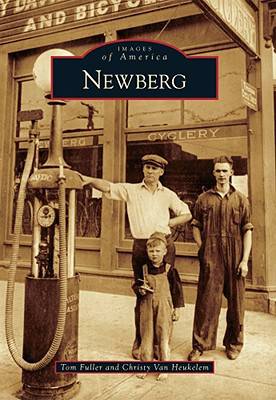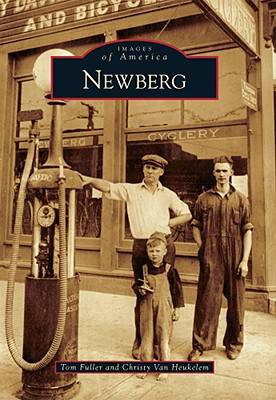
Bedankt voor het vertrouwen het afgelopen jaar! Om jou te bedanken bieden we GRATIS verzending (in België) aan op alles gedurende de hele maand januari.
- Afhalen na 1 uur in een winkel met voorraad
- In januari gratis thuislevering in België
- Ruim aanbod met 7 miljoen producten
Bedankt voor het vertrouwen het afgelopen jaar! Om jou te bedanken bieden we GRATIS verzending (in België) aan op alles gedurende de hele maand januari.
- Afhalen na 1 uur in een winkel met voorraad
- In januari gratis thuislevering in België
- Ruim aanbod met 7 miljoen producten
Zoeken
Omschrijving
The land that became the city of Newberg played a crucial role in the founding of the state of Oregon. It provided the second permanent encampment after Fort Astoria for trappers coming to the Pacific Northwest. Ewing Young came to Oregon in 1834, claiming as his own a vast stretch of land around his home in the Chehalem Valley. When Ewing died without a will, nearby residents gathered to settle Ewing's estate. This event led directly to the vote at Champoeg to make Oregon part of the United States. The town's name was given by pioneer Sebastian Brutscher after his Bavarian hometown of Neuburg. Other settlers arrived, and soon Newberg was a thriving pioneer town. Among the new settlers were members of the Friends Church, who set up an academy that is today one of the premier Christian universities in the country. Newberg was also home or way station to two U.S. presidents.
Specificaties
Betrokkenen
- Auteur(s):
- Uitgeverij:
Inhoud
- Aantal bladzijden:
- 128
- Taal:
- Engels
- Reeks:
Eigenschappen
- Productcode (EAN):
- 9780738581392
- Verschijningsdatum:
- 29/11/2010
- Uitvoering:
- Paperback
- Formaat:
- Trade paperback (VS)
- Afmetingen:
- 165 mm x 231 mm
- Gewicht:
- 317 g

Alleen bij Standaard Boekhandel
+ 69 punten op je klantenkaart van Standaard Boekhandel
Beoordelingen
We publiceren alleen reviews die voldoen aan de voorwaarden voor reviews. Bekijk onze voorwaarden voor reviews.









